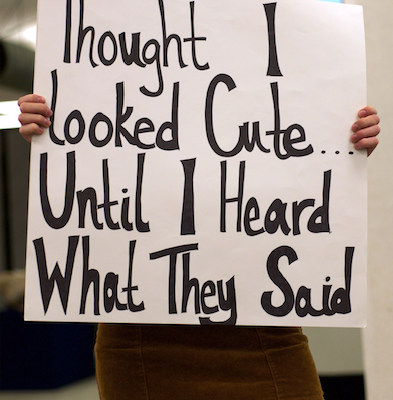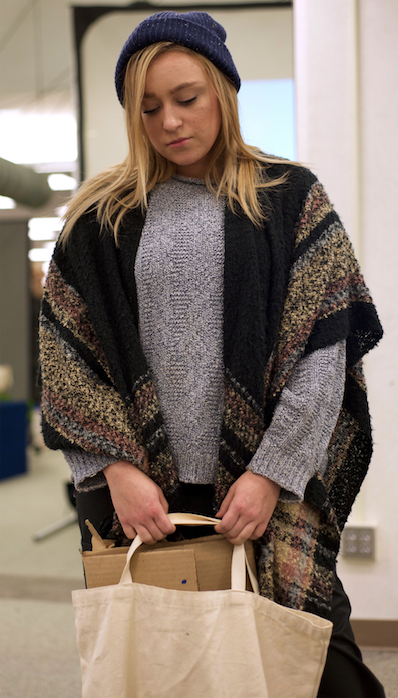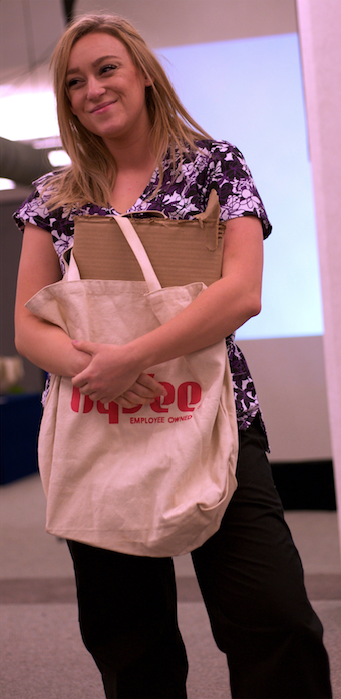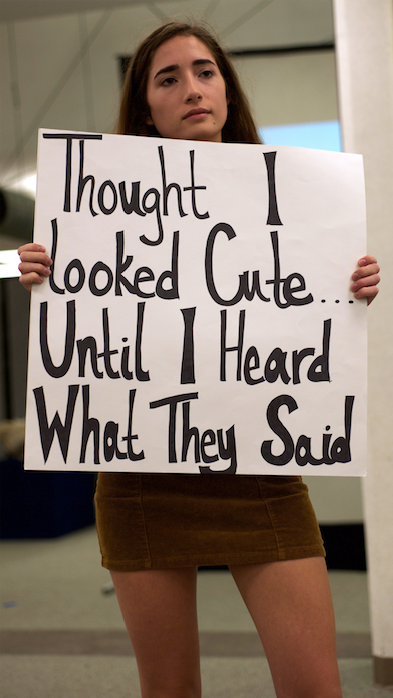UNI fashion show makes statement


A woman shuffles out from behind a screen dressed in a grey sweater, shawl and wool hat. Her appearance draws the feeling of poverty and sadness, but shockingly the sweater and hat come off to reveal nursing scrubs. The woman, now donning the appearance and feel of someone professional and capable, struts off center stage.
This was one of many pieces in the UNI Un(Dress) the Stigma empowerment fashion show on Oct. 20, in which the UNI dress and human behavior took on some of the stigmas put on clothing through a runway show held at the Rod Library on campus.
Inspiration for the show came through Humanize my Hoodie Project, which makes a statement on the senseless killing of black people based on what they wear, and works to dismantle the stigma of hoodies being associated with crime. With this in mind, the students worked to dismantle other clothing stigmas.

The show had five categories, each tackling a different aspect of someone being judged on what they wear. The first section was named for the show and was called “Un(Dress) the Stigma.” It addressed everyday situations women face on a daily basis such as catcalling, touching, criticism and more. The aim of this section was to make women feel comfortable in their own skin without worrying about others determining their worth based on appearance.
Section two was called “Tell Me.” It tackled the issue of victim blaming in an abusive situation whether in relationships, work or sexual assault cases.
Section three was named “MKTG 4562” named after the marketing strategy and asked: What is professional, and who gets to be it?
The fourth section was the one involving the girl with the sweater and nursing scrubs. It was called “Parallel perspectives. It spoke on the stigmatization of others’ identities based on the clothing they have on. It zeroed in on mistaken identities and opened up a new perspective on what may and may not appear at first glance.
 The fifth section was called “Phrontistery,” meaning a place to think or study. It focused on breaking out of the gender box, finding empowerment and being one’s true self.
The fifth section was called “Phrontistery,” meaning a place to think or study. It focused on breaking out of the gender box, finding empowerment and being one’s true self.
Section six was called “Free Mavericks.” It protested the identity ambivalence that comes with being bullied. It brought to light that people struggle to know who they are when opinions are being forced on them. This section showed the effect that bullying has on everyone.
The final section had the fun and bold title, “Scary Spice.” It dismantled the stigma that is put on people who dress very edgy, the idea that “I could never pull that off.”
Jackie Conrad, a CFHS alumni and UNI student, is in the UNI textiles and apparel program and took part in the show. She dressed like a waitress on the victim blaming section of the show.
“I stood up to the idea of being a waitress and how people think it gives them the right to touch or do something inappropriate to me,” she said. “It meant a lot because I am actually a waitress, and this is something I deal with all the time, and it never really gets talked about.”









You must be logged in to post a comment Login